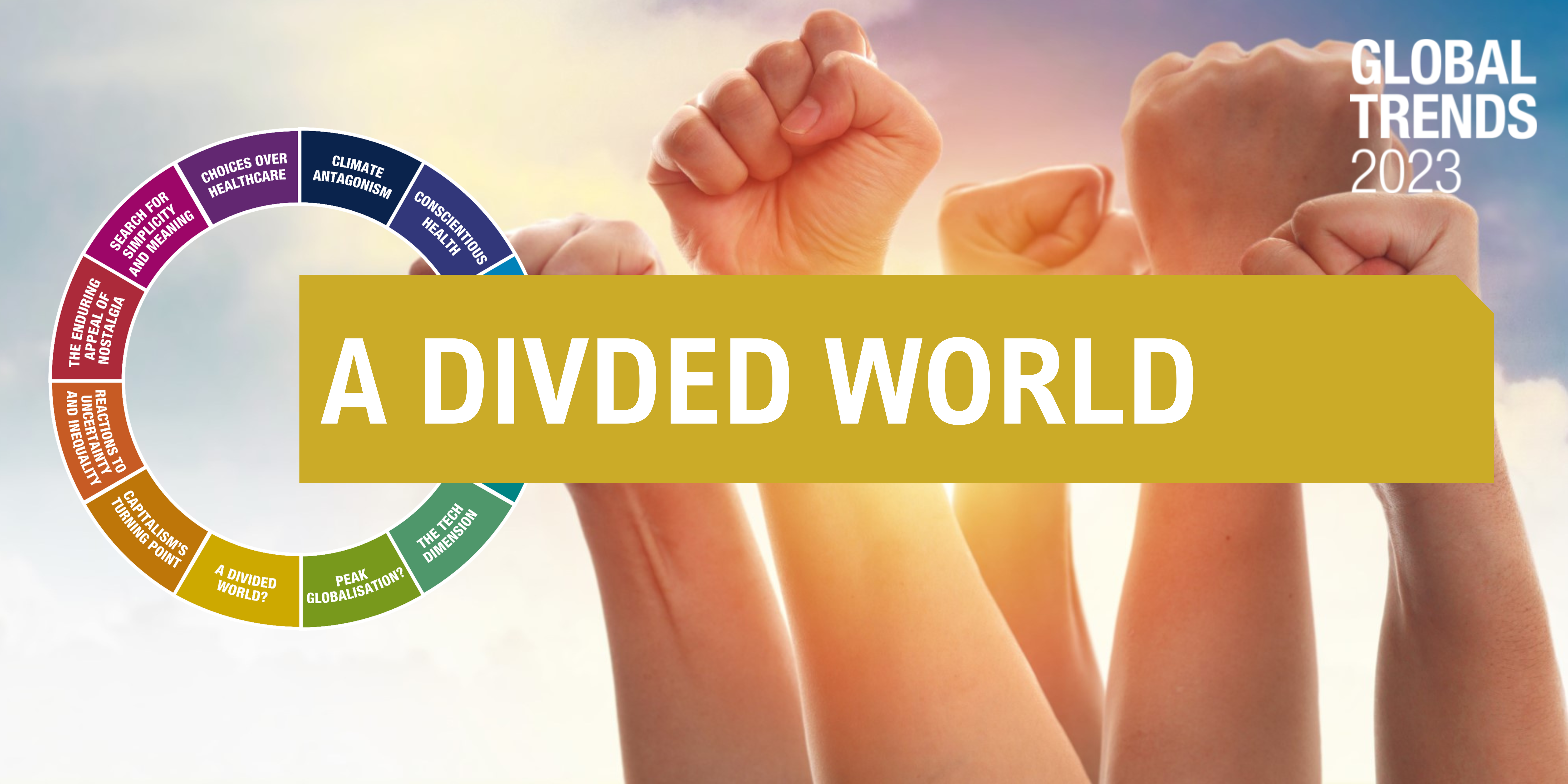85% APAC consumers agree that it is up to everyone to work out their own set of principles to guide their decisions
 The pandemic was (we hope) a rare event. It could have united the world against a common enemy. Instead, forces worked to drive and expand wedges between people in many nations about precautions and vaccines.
The pandemic was (we hope) a rare event. It could have united the world against a common enemy. Instead, forces worked to drive and expand wedges between people in many nations about precautions and vaccines.
The polycrisis is both a a driver and a result of our new world disorder. The existence of disagreements on multiple fronts - from the climate to human rights, immigration to fiscal policy, gender fluidity to data privacy, and around the ethics of artificial intelligence and synthetic biology - means that it's hard to build a coalition to solve any of them.

The technology and tools that connect us are also able to drive us apart. Headlines highlight divisions between us every time we log on. At the same time, people are looking to brands to play a role in solving these crises, and to help them reach their individual goals on issues like sustainability. They want brands that share their values. But many of the issues that brands could take a stand on are fraught with danger, so it's hard for brands to make the meaningful changes their customers want - because not all of their customers want the same things.
Yet, fundamentally, we share so many values. We see that in the data, again and again. We get caught up in the expression and implementation of those values, but that leaves room for hope that the forces dividing our world could also help bring it together.
 Thought Starters
Thought Starters
Does your brand or organisation have a role to play in relieving some of the tensions in our society, where governments cannot?
How do you continue to take a stand and align your organisation's values with your customers' values? how do you respond to potential backlashes?
